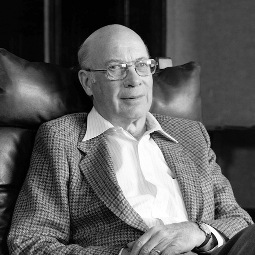A Quote by Robert Charles Wilson
These movies belonged to the twentieth and early twenty-first centuries that period of great, unsustainable, and hedonistic prosperity, driven by the burning of Earth's reserves of perishable oil, which culminated in the False Tribulation, and the wars, and the plagues, and the painful dwindling of inflated populations to more reasonable numbers.
Related Quotes
Regardless of how you feel about peak oil or global warming, the increased use of natural gas is a positive thing because it is being found at a rate that is faster than that of new oil reserves, it is relatively abundant, and our reserves are longer lived than our oil reserves... It does not get the kind of attention it deserves.
To restore our inflamed atmosphere to a hospitable state requires nothing less than rewiring the entire globe - and replace every oil-burning furnace, every gasoline-burning car, every coal-burning generating plant, with renewable, climate-friendly energy sources. The earth's fossil fuel resources have blessed us with a level of prosperity and abundance unimaginable a century ago. Today they are propelling us forward into a century of disintegration.
Americans once believed that their prosperity and way of life depended on having assured access to Persian Gulf oil. Today, that is no longer the case. The United States is once more an oil exporter. Available and accessible reserves of oil and natural gas in North America are far greater than was once believed. Yet the assumption that the Persian Gulf still qualifies as crucial to American national security persists in Washington. Why?
Government at all levels in the USA right now is engaged in a quixotic campaign to sustain the unsustainable. We're determined to run WalMart, Disney World, the Interstate Highways, suburbia, and an imperial military by other means than oil. We'll squander a lot of dwindling resources in the process.
I'm a professional geologist, an explorationist for oil. That's what I've done in my career, one that's culminated in - at least to this point - playing a part in finding the largest field in the last 40 years anywhere in the world. That's the Bakken field, which I believe will yield 24 billion barrels of oil in the decades to come, maybe more.
Venezuela has the biggest oil reserves in the world. And the biggest gas reserves in this hemisphere, the eighth in the world. Venezuela was a U.S. oil colony. All of our oil was going up to the north, and the gas was being used by the U.S. and not by us. Now we are diversifying. Our oil is helping the poor.
Book burning is a charming old custom, hallowed by antiquity. It has been practiced for centuries by fascists, communists, atheists, school children, rival authors, and tired librarians. Like everything of importance since the invention of the cloak and the shroud, its origins are cloaked in mystery and shrouded in secrecy. Some scholars believe that the first instance of book burning occurred in the Middle Ages, when a monk was trying to illuminate a manuscript. All agree that book burning was almost non-existent during the period when books were made of stone.
Speculation in oil stock companies was another great evil ... From the first, oil men had to contend with wild fluctuations in the price of oil. ... Such fluctuations were the natural element of the speculator, and he came early, buying in quantities and holding in storage tanks for higher prices. If enough oil was held, or if the production fell off, up went the price, only to be knocked down by the throwing of great quantities of stocks on the market.
was revolution much more than one fast kick forward in the long process called evolution? We condemened the 'cost' of revolution; but was it higher than the cost over centuries in backward, underdeveloped communities, which still covered two-thirds of the earth and which still could not guarantee their populations daily bread?
This whole theory [of John Law and Jean Terrasson], as dear to French financial schemers in the eighteenth century as to American "Greenbackers" in the nineteenth, had resulted, under the Orleans Regency and Louis XV, in ruin to France financially and morally, had culminated in the utter destruction of all prosperity, the rooting out of great numbers of the most important industries, and the grinding down of the working people even to starvation.



































